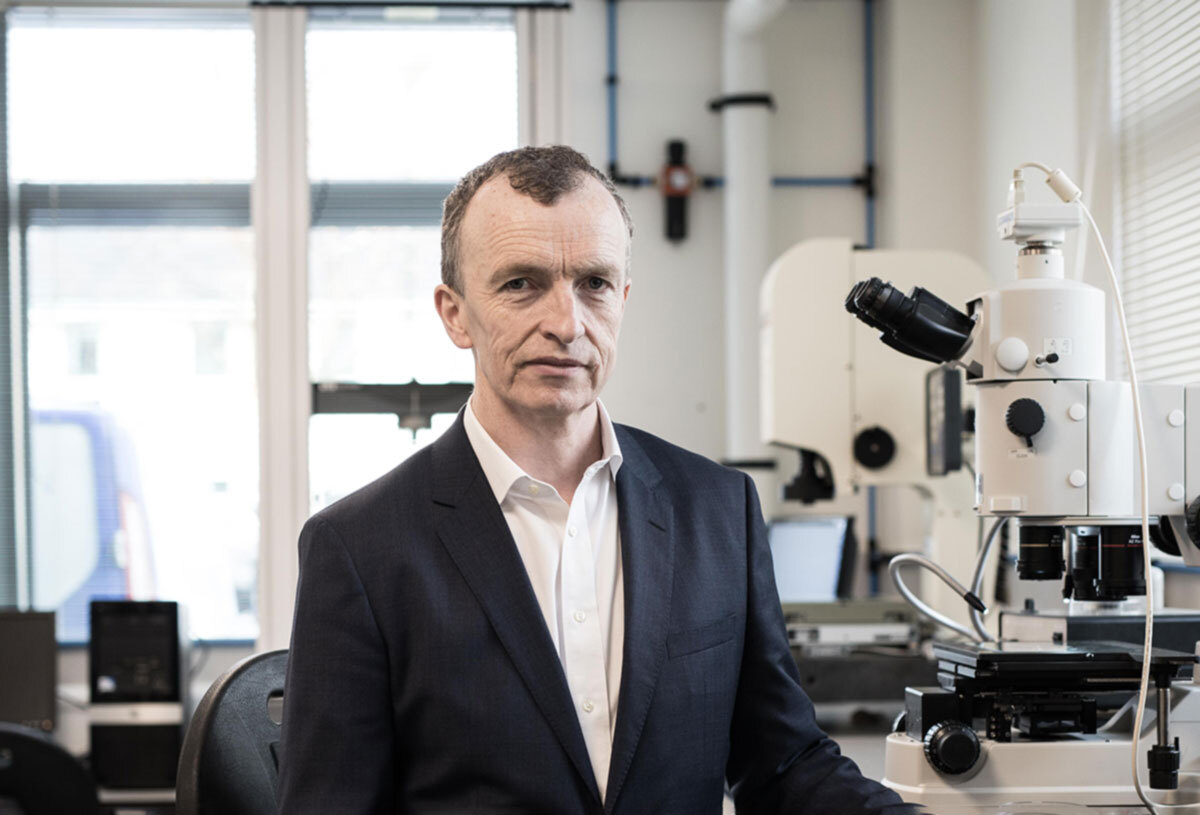Last month I made my way to the Galway International Arts Festival to interview an extraordinary, and under-appreciated, Irish entrepreneur.
John Power is the founder of Aerogen, a Galway-based company that is a world leader in its niche of aerosolised drug delivery.
The west of Ireland isn’t home to many native multinationals. As I learned in Galway, it took an extraordinary founder to make it happen.
Power told me about his upbringing in London — which his Irish-born parents insisted was never his home. When, midway through his career, a business opportunity presented itself in Knock Airport, he was pulled to Ireland. “This was the company that would bring me ‘home’,” he said.
John’s unconventional story has a lot to say about building a great business, and doing it in Ireland. Here are five things I thought about on the drive back from Galway.
It’s less about One Big Idea, than staying alert
John Power left school at 16. At first, he trained as a draftsman. Then he adjusted course and trained in engineering. Then, he studied robotics and automation.
Then he went to work in petrochemicals, and then a robotics startup. Then aeronautical engineering. At some point along the way, he did an MBA. Then his own civil engineering business. Then he got a job in MedTech. Then he got interested in nebulisers and started the company that would become Aerogen.
There are many more twists and turns. But the point is, Power’s career wasn’t building towards a career in MedTech or aerosols. It was all over the place. As he said, at the outset, “I knew nothing about nebulisers or aerosol drug delivery.” But he was always alert and ready to seize opportunities.
Holding can be as rewarding as selling
The country is now flooded with private equity. As soon as a company reaches a certain size, it will be inundated with offers from prospective buyers. Understandably, these offers can be hard to turn down.
Then when a company reaches an even larger size, as Aerogen has, there’s the temptation to go public. This has the attraction of a payday while retaining some control over the business.
But for Power, these are distractions. “I want to grow the business. There’s no need for us to sell. We’re not broke. We’re making money. We’re doing all right,” he says.
“I’ve had an experience of a float and whilst it seemed great fun at the time, reporting for public companies is really difficult. It’s a tremendous burden. So, I don’t know that I particularly want to do that.
“You can never say never. We’ve had lots of approaches to buy the company, but I don’t really have an interest in that.”
Product people need not be intimidated by finance
A common dividing line in technology companies is between product people — those who have trained in engineering or other technical subjects — and finance people. Often a venture capitalist will parachute in a finance person to “babysit” the product people who founded the company.
“A lot of the finance world like to think that techie guys, the innovation guys, are just about the ideas, and that you need to beat finance boys to figure out how to run the business.
“And I was fortunate that I got exposed to that early. I realised that a lot of those guys were not all that smart really. You can get advice from them; a lot of them are good people. I am not knocking the finance world, but I just thought I did not need to have someone else telling me how to run the business.”
Aerogen is the template for multinational spillovers
Ireland is a twin-track economy. The multinationals are oversized and the indigenous companies are unusually weak. What seems to be happening is that multinationals are “crowding out” local companies, by sucking up the best talent.
Power and Aerogen are the template for how it’s meant to go. Power worked at Puritan Bennett (now Medtronic), where he learned about the medical devices industry and spotted the problem with aerosol technology. Then he put that knowledge, and those connections, to work at his own company. Now Aerogen is world-class in its own right.
These are what economists call spillovers. Ireland needs more of them.
A survivor from a market crash
Right now, we appear to be going through a version of the 1990s Dotcom crash. Time will tell how big it turns out to be. But a lot of companies had come to be dependent on cheap capital, and now the capital is drying up.
Two things happened in the Dotcom bubble and its aftermath: bad unviable companies went belly up, and important investments were made that subsequently transformed the world. Aerogen’s technology was in the latter category.
Cheap capital funded a lot of ambitious projects in the last decade. Hopefully, some will pay off in the coming years.
Elsewhere this week
Francesca has the story of a seemingly simple formula — E = 1.18 x (combined revenue – $32m) — at the centre of an international legal dispute. The formula refers to the earn-out payment owed to the founders of Barracuda FX, a company acquired in 2019. The founders of Barracuda FX say the formula means they’re owed more than $12 million; the new owners do not agree.
Stephen wrote about an underappreciated problem for small, brick-and-mortar retailers. Small retailers don’t have the money or the expertise to handle data. It’s another reason why the main street, as we have known it, is dying out. We need to plan for another future for those spaces.
Rosanna met with Ian Browne, the managing director of the NDRC accelerator, as NDRC admits a new cohort of startups into its accelerator program. It’s a new world for startups, he said: “Founders are going to come out now, and it’s gonna be much, much more difficult to raise capital than it was six or nine or twelve months ago.”


